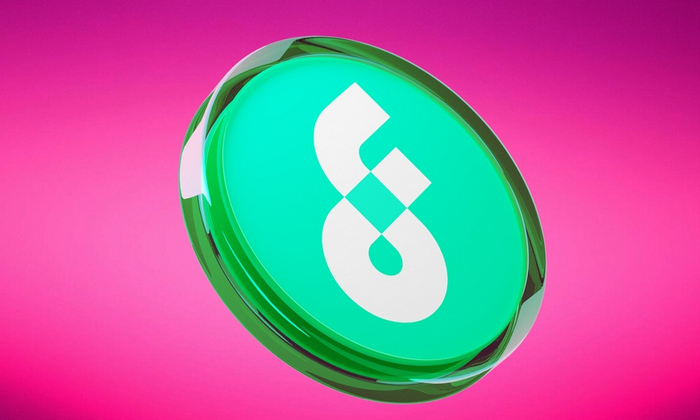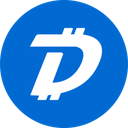-
 Bitcoin
Bitcoin $83,055.9927
-0.47% -
 Ethereum
Ethereum $1,811.3411
-0.84% -
 Tether USDt
Tether USDt $0.9996
-0.02% -
 XRP
XRP $2.0568
-0.29% -
 BNB
BNB $592.3786
-1.07% -
 USDC
USDC $1.0000
0.02% -
 Solana
Solana $115.8401
-3.10% -
 Dogecoin
Dogecoin $0.1622
-2.36% -
 Cardano
Cardano $0.6499
-0.49% -
 TRON
TRON $0.2387
1.14% -
 Toncoin
Toncoin $3.5313
-7.91% -
 UNUS SED LEO
UNUS SED LEO $9.4387
0.79% -
 Chainlink
Chainlink $12.8160
-2.83% -
 Stellar
Stellar $0.2597
-0.92% -
 Avalanche
Avalanche $18.1550
-1.86% -
 Sui
Sui $2.2297
-6.00% -
 Shiba Inu
Shiba Inu $0.0...01216
-1.10% -
 Hedera
Hedera $0.1628
-0.73% -
 Litecoin
Litecoin $83.3180
0.23% -
 Polkadot
Polkadot $4.0186
-0.86% -
 MANTRA
MANTRA $6.3865
0.69% -
 Bitcoin Cash
Bitcoin Cash $302.0680
0.90% -
 Bitget Token
Bitget Token $4.5033
-1.06% -
 Dai
Dai $1.0000
0.01% -
 Ethena USDe
Ethena USDe $0.9995
-0.05% -
 Hyperliquid
Hyperliquid $11.9355
-4.35% -
 Monero
Monero $213.8810
-0.87% -
 Pi
Pi $0.5489
-17.54% -
 Uniswap
Uniswap $5.8524
-1.97% -
 Aptos
Aptos $5.0205
-3.57%
Detailed buying, selling and trading tutorials for FLOW coin (with pictures and text)
To buy FLOW, create an account on a reputable cryptocurrency exchange, fund your account, find the FLOW trading pair, place a buy order, confirm the details, and complete the purchase.
Oct 23, 2024 at 12:06 pm

Open an Account on a Cryptocurrency Exchange:
Create an account with a reputable cryptocurrency exchange that supports FLOW trading. Some popular options include:
- OKX
- Binance
- KuCoin
Fund Your Account:
Deposit funds into your exchange account using your preferred payment method, such as:
- Bank transfer
- Credit/debit card
- Cryptocurrencies
Find the FLOW Trading Pair:
Navigate to the exchange's trading interface and search for FLOW trading pairs. Common pairs include:
- FLOW/USDT
- FLOW/BUSD
- FLOW/BTC
Place a Buy Order:
Select the "Buy" option and specify:
- The amount of FLOW you want to buy
- The type of order (e.g., market order for instant execution or limit order for a specific price)
- The order price (if placing a limit order)
Confirm and Execute Your Order:
- Review the order details and ensure they are correct.
- Click "Buy" to execute the order. Your FLOW will appear in your exchange wallet once the order is complete.
Withdraw Your FLOW:
- If desired, you can withdraw your FLOW coins to a hardware wallet or personal wallet for safekeeping.
- Navigate to the "Withdrawals" section of the exchange and select FLOW.
- Input the recipient's wallet address and the amount to withdraw.
- Confirm the withdrawal and follow the on-screen instructions.
Disclaimer:info@kdj.com
The information provided is not trading advice. kdj.com does not assume any responsibility for any investments made based on the information provided in this article. Cryptocurrencies are highly volatile and it is highly recommended that you invest with caution after thorough research!
If you believe that the content used on this website infringes your copyright, please contact us immediately (info@kdj.com) and we will delete it promptly.
- Gold Dips from Record High as Market Turmoil Sparks Profit-Taking
- 2025-04-04 08:35:12
- Factors such as whale accumulation, bullish technical indicators, and market sentiment have contributed to this optimistic outlook.
- 2025-04-04 08:35:12
- With the crypto market entering a new growth cycle in 2025
- 2025-04-04 08:30:11
- EOS Price Defies the Market Crash: +46% in a Week!
- 2025-04-04 08:30:11
- BlockDAG (BDAG) Breaks Records With 2,380% Presale Price Jump, Outpacing Dogecoin (DOGE) and Kaspa (KAS)
- 2025-04-04 08:25:12
- Economic uncertainty and a major crypto exchange hack pushed down the total value locked in DeFi protocols to $156 billion in the first quarter of 2025
- 2025-04-04 08:25:12
Related knowledge

What is Ethereum’s Slashing mechanism and how to punish malicious behavior?
Feb 20,2025 at 03:08am
Key PointsOverview of slashingDifferent types of slashing in EthereumIncentives and consequences of slashingIdentifying and reporting slashed validatorsOngoing discussions and potential improvementsEthereum's Slashing Mechanism: Punishing Malicious BehaviorEthereum's slashing mechanism is an essential tool for ensuring network security and punishing mal...

What is the verifier node of Ethereum and how to become a verifier?
Feb 19,2025 at 06:00pm
The Verifier Node of Ethereum: A Comprehensive GuideKey Points:What is a Verifier Node?How to Become a Verifier NodeResponsibilities and Rewards of a Verifier NodeMinimum Requirements for Becoming a Verifier NodePotential Difficulties in Running a Verifier Node1. What is a Verifier Node?A Verifier Node is an independent entity on the Ethereum network th...

What is Ethereum’s staking, and how to participate and earn money?
Feb 19,2025 at 04:37pm
Key Points:Understanding Ethereum's Staking MechanismSteps to Participate in StakingBenefits and Rewards of StakingSecurity and Risk ConsiderationsTechnical Requirements and Hardware OptionsPotential Challenges and Troubleshooting TipsFAQs on Ethereum StakingWhat is Ethereum's Staking?Proof-of-Stake (PoS) is a consensus mechanism used in blockchain netw...

What is Ethereum’s DAO (Decentralized Autonomous Organization) and how does it work?
Feb 20,2025 at 03:12am
Key PointsDefinition and Structure of a DAOGovernance and Decision-Making in DAOsBenefits and Use Cases of DAOsChallenges and Limitations of DAOsWhat is Ethereum's DAO (Decentralized Autonomous Organization) and How Does It Work?Definition and Structure of a DAOA Decentralized Autonomous Organization (DAO) is an innovative governance and management fram...

What is Ethereum's multi-signature wallet and how to improve security?
Feb 20,2025 at 02:18pm
Key Points:Understanding the Concept of a Multi-Signature WalletBenefits and Drawbacks of Multisig WalletsRequirements for Setting Up a Multisig WalletStep-by-Step Guide to Generating a Multisig WalletImplementing Strategies for Enhanced Security1. Understanding the Concept of a Multi-Signature WalletA multi-signature (multisig) wallet in the Ethereum e...

What is Ethereum's oracle and how to provide data for smart contracts?
Feb 21,2025 at 01:30am
Key Points:Understanding the concept of oracles in EthereumExploring different types of oraclesDetailed guide on how to provide data for smart contractsAddressing potential challenges and considerationsWhat is Ethereum's Oracle?Oracles are crucial components in the Ethereum ecosystem, enabling smart contracts to access real-world data and off-chain even...

What is Ethereum’s Slashing mechanism and how to punish malicious behavior?
Feb 20,2025 at 03:08am
Key PointsOverview of slashingDifferent types of slashing in EthereumIncentives and consequences of slashingIdentifying and reporting slashed validatorsOngoing discussions and potential improvementsEthereum's Slashing Mechanism: Punishing Malicious BehaviorEthereum's slashing mechanism is an essential tool for ensuring network security and punishing mal...

What is the verifier node of Ethereum and how to become a verifier?
Feb 19,2025 at 06:00pm
The Verifier Node of Ethereum: A Comprehensive GuideKey Points:What is a Verifier Node?How to Become a Verifier NodeResponsibilities and Rewards of a Verifier NodeMinimum Requirements for Becoming a Verifier NodePotential Difficulties in Running a Verifier Node1. What is a Verifier Node?A Verifier Node is an independent entity on the Ethereum network th...

What is Ethereum’s staking, and how to participate and earn money?
Feb 19,2025 at 04:37pm
Key Points:Understanding Ethereum's Staking MechanismSteps to Participate in StakingBenefits and Rewards of StakingSecurity and Risk ConsiderationsTechnical Requirements and Hardware OptionsPotential Challenges and Troubleshooting TipsFAQs on Ethereum StakingWhat is Ethereum's Staking?Proof-of-Stake (PoS) is a consensus mechanism used in blockchain netw...

What is Ethereum’s DAO (Decentralized Autonomous Organization) and how does it work?
Feb 20,2025 at 03:12am
Key PointsDefinition and Structure of a DAOGovernance and Decision-Making in DAOsBenefits and Use Cases of DAOsChallenges and Limitations of DAOsWhat is Ethereum's DAO (Decentralized Autonomous Organization) and How Does It Work?Definition and Structure of a DAOA Decentralized Autonomous Organization (DAO) is an innovative governance and management fram...

What is Ethereum's multi-signature wallet and how to improve security?
Feb 20,2025 at 02:18pm
Key Points:Understanding the Concept of a Multi-Signature WalletBenefits and Drawbacks of Multisig WalletsRequirements for Setting Up a Multisig WalletStep-by-Step Guide to Generating a Multisig WalletImplementing Strategies for Enhanced Security1. Understanding the Concept of a Multi-Signature WalletA multi-signature (multisig) wallet in the Ethereum e...

What is Ethereum's oracle and how to provide data for smart contracts?
Feb 21,2025 at 01:30am
Key Points:Understanding the concept of oracles in EthereumExploring different types of oraclesDetailed guide on how to provide data for smart contractsAddressing potential challenges and considerationsWhat is Ethereum's Oracle?Oracles are crucial components in the Ethereum ecosystem, enabling smart contracts to access real-world data and off-chain even...
See all articles






















































































